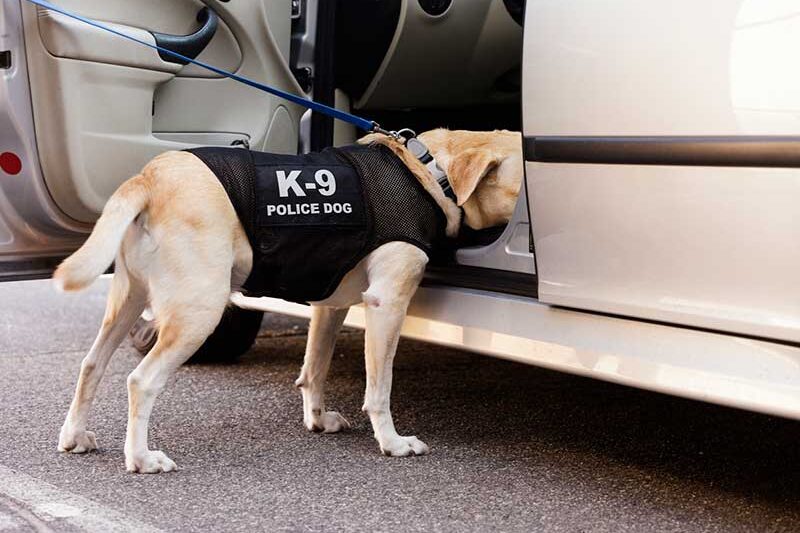The Fourth Amendment guards against unreasonable searches and seizures during multiple circumstances, including traffic stops. According to the Fourth Amendment, necessity of reasonable suspicion for a lawful stop. Additionally, the exclusionary rule may affect evidence gathered without such suspicion. We can also break down how further investigation post-stop requires additional suspicion or consent. If you have been subjected to an unlawful stop and investigation, you can take legal action. You also don’t have to fight alone.
At King Law, we prioritize providing quality legal services and ensuring our clients’ best interests are protected in North Carolina and South Carolina. Focusing on a variety of practice areas, including family law, criminal law, and personal injury, we strive to offer accessible legal assistance to everyone in need. Our commitment to quality service and client satisfaction establishes us as a trusted partner for navigating legal challenges. If you believe you have been subjected to an unlawful search, we encourage you to contact King Law and retain our help.

What Does the 4th Amendment Say About Traffic Stops?
When the framers of the constitution drafted the 4th amendment, it is safe to say they could not anticipate the invention of the automobile and certainly not their essential function in the daily life of Americans.
Fortunately, the Constitution was designed as a fluid instrument to prevent the government from denying essential protections to new technologies. As a result, we all have certain rights when it comes to traffic stops which prevent law enforcement from taking certain actions.
How Does the Fourth Amendment Protect Citizens?
The Fourth Amendment prevents the government from performing unreasonable searches and seizures, meaning there must be reasonable suspicion to complete these actions. A traffic stop would be considered a seizure under the Fourth Amendment. To be shown as reasonable, the officer needs to show reasonable suspicion to pull over your car.
For example, police officers would be expected to provide a search warrant, prove they are conducting a routine traffic stop, or otherwise clarify there is probable cause. This means, typically, they must have adequate reason to believe you have committed a traffic offense or some other crime.
What Happens to Evidence From Unreasonable Searches?
The police officer needs to show that there is a reasonable or articulable suspicion that there is criminal activity afoot, such as a traffic violation. So if you have committed some kind of traffic violation in the officer’s presence, the Fourth Amendment won’t help you.
But, if you have not committed any crime and the officer cannot have the reasonable suspicion to think that you have committed a crime, he or she has no legal right to pull you over and thanks to the exclusionary rule, any evidence found against you as a result of that stop likely cannot be used at trial.
What if There Is Reasonable Suspicion?
If the officer did have reasonable suspicion to pull you over, a subsequent investigation could still be unlawful.
For example, let’s say you were pulled over by an officer for a broken tail light. In this case, you have committed a violation in the officer’s presence and there was reasonable suspicion to stop your vehicle so the violation can be addressed. They then write you a ticket and hand the ticket over to you, thus addressing the violation.

What Does the Fourth Amendment Say About Further Investigations?
Once a violation has been addressed, if the officer wants to perform a further investigation, they must show grounds that provide a reasonable and articulable suspicion justifying further delay or show that you consented to a search.
Can You Refuse to Consent to Further Investigation?
If you were to refuse to consent to the search, the officer needs additional reasonable suspicion and probable cause to continue the investigation. Additionally, a refusal to consent does not create reasonable suspicion for criminal activity, so there is nothing to lose by refusing to consent to a search.
If the officer were to search you or your car with no consent and no reasonable suspicion, the evidence of any criminal activity against you would again be likely inadmissible under the exclusionary rule.
Allow Us to Help Protect Your Fourth Amendment Rights: Contact King Law to Retain Outstanding Representation
Understanding your rights during a traffic stop is crucial, and our team at King Law can provide essential insights into how the Fourth Amendment protects you. If you’re unsure about the legality of a traffic stop or the search of your vehicle, our experienced team is here to help clarify your rights and options.
Don’t navigate this complex area alone; reach out to us at King Law for guidance. Please call (888) 748-5464 or (888) 748-KING or complete our contact form to schedule a consultation and ensure your rights are protected. We look forward to supporting you as you navigate your legal matters and aiding you in fighting for your rights.

